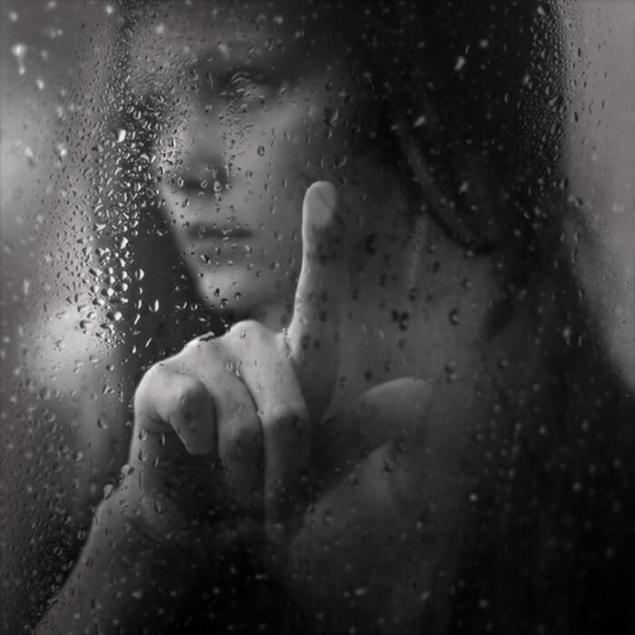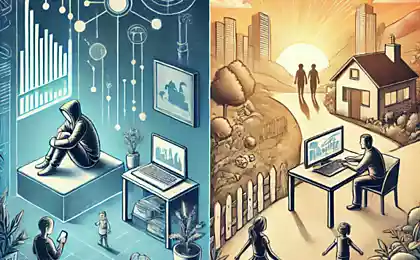471
The price of solitude
Bella De Paulo, the exchanged seventh ten, life was lonely. One time she thought a bee of marriage one day will bite her, until I realized that this does not happen — and that she does not want to. De Paulo calls himself "a loner by nature," and enjoys this way of life. What she does like is the prejudice faced by single people: from cultural rejection and ending discrimination at work, in the media and elsewhere. That is why the sociologist of Harvard University (now research fellow, University of California, Santa Barbara) spent almost twenty years studying the lives of lonely people in America and publish their findings in scientific journals, blogs and books, including the work called "Detached". She explains why common negative stereotypes about single people are largely artificial, while ridiculous prejudices are real, and so deeply rooted in our minds that often we do not even notice.

First, let's define the terms "singles and matrimania" ("singlism" derived from "single" (single, unmarried); "matrimania", derived from "matrimonial" (marriage) and "mania" (mania, obsession) — approx. Newочем). De Paulo came up with these two words, and they play an important role in this discussion. "Singles is the stereotyping, stigmatizing and discrimination against people who are not married. At the other extreme, inherent supporters singlema — matrimania: excessive celebration and excitement around marriage and weddings. So if you are alone you are faced with that, and the other," she explains.
Single people face discrimination in the workplace...De Paulo claims that the personal lives of single people is often considered less important and honored than the personal lives of those who are married. Referring to the fact that the singles don't have to sit at home, they expect them to work harder, while having children and married to leave work early, take the last possible weekend or longer travel. Singles in USA are faced with more tangible consequences, such as providing insurance or social benefits and payments: in the same position married men earn about 26% more than single.
... and, as a rule, they are respected less than their married counterparts. Together with his colleagues De Paulo made up of biographical sketches of people with similar fates — only half of them were single, and the other half are people who were married. The participants accused the contingent of individuals that they were less socially Mature, not as balanced and more self-centered than opposed to them, the people who were similar to them in everything except marital status. Especially clearly this difference was observed in the evaluation of a conditional 40-year-old — within-rooted cultural assumptions have reached the age when they are already supposed to be married, but she also persisted in relation to a conditional 25-year-old.
However, the 107 million U.S. residents over the age of 18 is single."Singles make up almost half of the population, and Americans spend most of their adult life without being married — it's one of my favorite statistics," says De Paulo. This means that the moralizing of the institution of marriage, coupled with the denigration of a life of loneliness not only hurts a huge portion of the population, but also cut off from cultural reality.
We often do not consider singles prejudice. In a series of studies of the housing question De Paulo and his colleagues described to the participants the owner and two people interested in his assets. Every time people from discriminated groups offered more money than the person of the universally recognized most, but the owner chose the latter: a man, not a woman; white, not a Negro; a married couple, not alone. Participants recognized that the choice of the owner — this is discrimination. In all cases, except the last one. Then "they said "the fact that the couple is married" — as if that explains everything. They did not notice what was obvious in all other cases: that it is discrimination," said De Paulo.
Singles and matrimania is the result of cultural insecurity. This may seem strange, but De Paulo believes that prejudice against single people and hysteria of marriage is a consequence of our insecurity.
"If the benefits of marriage were obvious, we wouldn't need all that extra hype of"everything that could give marriage, can now be achieved in other ways: an unmarried woman can have children, provide for themselves and to share the bed with different partners, and none of the others will not lead and eyebrow. It's one thing to say that marriage is a good choice for those who really wants it, but to believe that married people are by far in a better position than single means to deny the profound ambiguity of all that makes marriage a viable option, says De Paulo.
The widespread opinion that people who are married are healthier and happier than single, is not justified. De Paulo decided to delve into the study that supposedly proved the benefits of married life, and found significant flaws in all experiments. (Often in these studies, divorced people were not considered at all, or they were pooled in one group alone, thereby ignoring the fact that they were married and they did not like. Another problem — in contrast to the study drugs, the study of marriage, you can not completely eliminate other variables: you can not arbitrarily charging people to enter or not to enter into marriage.) In the study, which estimated De Paulo, was least problematic, was traced as the same people over a long period of time. It turned out that before and after the wedding, people have seen a short-term increase level of happiness, but then he returns to the indicators that was before marriage. (And if they later divorce, this short-term effect honeymoon is imperceptible.) The prejudice against single parents is also easy to destroy: the children bad not the absence of one parent, "conflict, hostility, or cold and indifferent attitude".
The point is that none of this is not better or worse — there is no simple recipe for happiness. The happiest people follow their desires, whether married or single life. De Paulo, like many others, feels fine staying alone. "If I get married, I won't healthier and happier. I like to live alone — except for singles and matrimania". published
Author: Jessica Gross
P. S. And remember, just changing your mind — together we change the world! ©
Join us in Facebook , Vkontakte, Odnoklassniki
Source: vk.com/public80512191?w=page-80512191_49849788

First, let's define the terms "singles and matrimania" ("singlism" derived from "single" (single, unmarried); "matrimania", derived from "matrimonial" (marriage) and "mania" (mania, obsession) — approx. Newочем). De Paulo came up with these two words, and they play an important role in this discussion. "Singles is the stereotyping, stigmatizing and discrimination against people who are not married. At the other extreme, inherent supporters singlema — matrimania: excessive celebration and excitement around marriage and weddings. So if you are alone you are faced with that, and the other," she explains.
Single people face discrimination in the workplace...De Paulo claims that the personal lives of single people is often considered less important and honored than the personal lives of those who are married. Referring to the fact that the singles don't have to sit at home, they expect them to work harder, while having children and married to leave work early, take the last possible weekend or longer travel. Singles in USA are faced with more tangible consequences, such as providing insurance or social benefits and payments: in the same position married men earn about 26% more than single.
... and, as a rule, they are respected less than their married counterparts. Together with his colleagues De Paulo made up of biographical sketches of people with similar fates — only half of them were single, and the other half are people who were married. The participants accused the contingent of individuals that they were less socially Mature, not as balanced and more self-centered than opposed to them, the people who were similar to them in everything except marital status. Especially clearly this difference was observed in the evaluation of a conditional 40-year-old — within-rooted cultural assumptions have reached the age when they are already supposed to be married, but she also persisted in relation to a conditional 25-year-old.
However, the 107 million U.S. residents over the age of 18 is single."Singles make up almost half of the population, and Americans spend most of their adult life without being married — it's one of my favorite statistics," says De Paulo. This means that the moralizing of the institution of marriage, coupled with the denigration of a life of loneliness not only hurts a huge portion of the population, but also cut off from cultural reality.
We often do not consider singles prejudice. In a series of studies of the housing question De Paulo and his colleagues described to the participants the owner and two people interested in his assets. Every time people from discriminated groups offered more money than the person of the universally recognized most, but the owner chose the latter: a man, not a woman; white, not a Negro; a married couple, not alone. Participants recognized that the choice of the owner — this is discrimination. In all cases, except the last one. Then "they said "the fact that the couple is married" — as if that explains everything. They did not notice what was obvious in all other cases: that it is discrimination," said De Paulo.
Singles and matrimania is the result of cultural insecurity. This may seem strange, but De Paulo believes that prejudice against single people and hysteria of marriage is a consequence of our insecurity.
"If the benefits of marriage were obvious, we wouldn't need all that extra hype of"everything that could give marriage, can now be achieved in other ways: an unmarried woman can have children, provide for themselves and to share the bed with different partners, and none of the others will not lead and eyebrow. It's one thing to say that marriage is a good choice for those who really wants it, but to believe that married people are by far in a better position than single means to deny the profound ambiguity of all that makes marriage a viable option, says De Paulo.
The widespread opinion that people who are married are healthier and happier than single, is not justified. De Paulo decided to delve into the study that supposedly proved the benefits of married life, and found significant flaws in all experiments. (Often in these studies, divorced people were not considered at all, or they were pooled in one group alone, thereby ignoring the fact that they were married and they did not like. Another problem — in contrast to the study drugs, the study of marriage, you can not completely eliminate other variables: you can not arbitrarily charging people to enter or not to enter into marriage.) In the study, which estimated De Paulo, was least problematic, was traced as the same people over a long period of time. It turned out that before and after the wedding, people have seen a short-term increase level of happiness, but then he returns to the indicators that was before marriage. (And if they later divorce, this short-term effect honeymoon is imperceptible.) The prejudice against single parents is also easy to destroy: the children bad not the absence of one parent, "conflict, hostility, or cold and indifferent attitude".
The point is that none of this is not better or worse — there is no simple recipe for happiness. The happiest people follow their desires, whether married or single life. De Paulo, like many others, feels fine staying alone. "If I get married, I won't healthier and happier. I like to live alone — except for singles and matrimania". published
Author: Jessica Gross
P. S. And remember, just changing your mind — together we change the world! ©
Join us in Facebook , Vkontakte, Odnoklassniki
Source: vk.com/public80512191?w=page-80512191_49849788
The education of his son. As a woman behaves that close and gets
Ten charming Spanish towns that you should visit
























